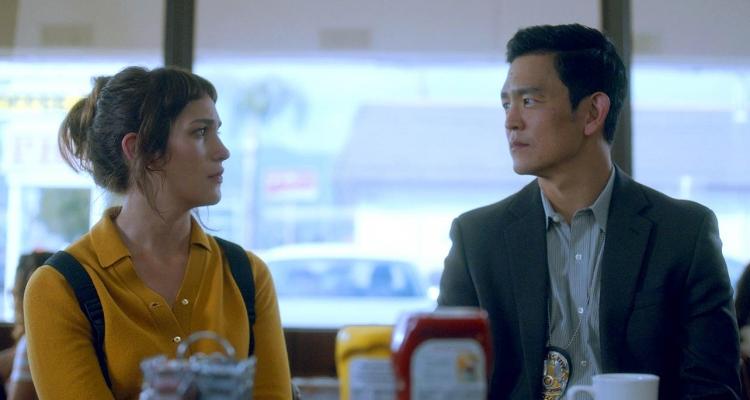Aaron, you’re a director who likes to mess with around with genre—”Land Ho!” is a really unique take on the buddy comedy—and I thought that this was a really fascinating modernization of noir. Tell me more about some of your inspirations.
AK: There are two layers of inspiration. One is thrillers from what I consider the golden age of VHS—let’s say the early ’80s through the late ’90s—starting with “American Gigolo” and “Body Heat.” Those kick off the era of thriller that I hope that this movie lives in the tradition of, that extends through the 80s with films like “Jagged Edge” and Curtis Hanson’s “Bedroom Window” and “Bad Influence,” and then up through some of the more salacious titles of the ’90s like “Poison Ivy,” and even up through like, “Cruel Intentions.” We really wanted to immerse ourselves in that; we watched a lot of that kind of movie.
And then the other layer of influence is mystery novels from the 1930s and 40s, especially British ones by—of course, Agatha Christie, but also Niall Marsh and one of my favorites is John Dickson Carr, who I think is really the king of mystery plotting, and who does not get nearly enough acknowledgement these days. Everyone should read John Dickson Carr.
This movie is so up my aesthetic alley, I definitely will.
JC: “Aesthetic Alley,” good title.
AK: Yeah, that’s the next movie.
Something else that really struck me is this conversation that Heather and Jill have at the beginning of the film—it’s drunken talk between these two female friends, but it goes to an exciting and really genuine place when Heather says, “You know how you said you feel unsafe? I feel that way all the time.” Obviously, in the cultural conversation, we’re having right now, that’s very art-imitates-life thing. Aaron, as a male writer-director, how did you access that?
AK: Interesting! Yeah, no one’s ever asked this question before. I guess it just felt really right. The movie is based on a lot of observations from real life, and I’d say there’s no one person or event that is the inspiration, but just a collection of stories and things that I’ve observed from living in Los Angeles. And I think that that moment has a couple of layers to it. There’s the real layer of it, which is kind of what we’re talking about right now, and she’s just stating a fact—but there’s also the fact that she wants something. She’s both saying a fact and also she’s an actor. She’s doing what she needs to get the result that she wants.
JC: I will say that that line really resonated with me as an interesting understanding of fame. I have said, for many years, that being famous, I feel like a very pretty girl. And that’s a double-sided condition: in some ways, it’s very nice to have the attention, but there’s a vulnerability to being a pretty girl. There’s a strength and an armor in anonymity that you don’t have when you are seen all the time, and you never get to blend, you know?
AK: Yeah, like I noticed when we were at South by Southwest we’d walk down the street, and people would want to take pictures with John, and some people would be very polite and thoughtful about it, and other would be very aggressive. It felt like they were cutting out the part where like—they know John from movies, but also John is a human.
JC: This is another thing where, I don’t want this to turn into a woe-is-me thing, but this is a thing that I’ve been thinking about lately, in light of the last calendar year. Again, comparing myself to a girl, and this thing about your body not being your own—sometimes [when you’re famous,] people feel very familiar with your body in a way that’s a little transgressive and weird, you know? I had a guy once who wanted to take a picture, and right on “Three, two, one,” he grabbed my nipple. That is an extreme example, but a lot of people will grab and touch, and it makes you powerless and feel less safe in the world.
“Gemini” is now playing in select theatres.

